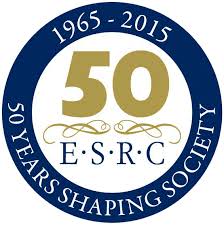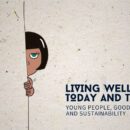
Interview
:: Why did you pursue an academic career?
I am an ‘accidental academic’, starting my professional life working on a voluntary (and then freelance) basis doing research for environmental organisations like Friends of the Earth and Greenpeace, places where sustainability issues were being taken most seriously. At an international symposium in 1992, I met Professor Roland Clift, who later persuaded me to apply for a research fellowship at the University of Surrey. The rest, as they say, is academic history – although I still maintain strong links with civil society organisations and policymakers.
:: What career achievements are you most proud of?
I was appointed as Economics Commissioner on the UK Sustainable Development Commission 2004-2011, reporting directly to the UK government on questions related to sustainability. It was a tremendously productive period in terms of government’s engagement on sustainability, and exciting to be part of. I helped draft the UK Sustainable Development Strategy in 2005 and co-wrote the UK Sustainable Consumption Round Table report I will if you will, worked on the UK’s first ‘wellbeing’ strategy in 2007.
In 2009 I published a landmark study entitled Prosperity without Growth, subsequently published as a book and translated into 17 foreign languages. This work provided both the foundation and the motivation for my ongoing research portfolio as an academic.
:: What is the most important issue society is facing today?
Our most urgent need is to understand what prosperity can possibly mean on a finite planet, with a population rapidly approaching nine billion people. Modern capitalism is facing three related crises: environmental impacts such as climate change and biodiversity loss threaten to undermine the ecosystems on which human society depends; recent decades have witnessed an unacceptable rise in social inequality; and the financial systems on which we depend for investment and for long-term savings have already threatened to destabilise our economies.
Much of this potentially toxic mix can be traced to the ways in which we measure and organise prosperity, and in particular to the misunderstanding that rising prosperity is the same thing as a rising demand for consumer goods and services.
:: What do you feel is the most important finding of economics and social science over the past 50 years?
Social science has provided us with numerous critical insights into the nature of prosperity. It has helped us understand what wellbeing means, where inequality comes from, what motivates people, and how we might organise society for the benefit of all.
I have been particularly influenced by Peter Townsend’s early studies on poverty in the UK, in which he demonstrated how poverty is not just a question of money and material things, but also of our ability to participate fully in the life of society – a finding that has been echoed by anthropologists such as Mary Douglas and sociologists such as Colin Campbell. I believe these insights are critical in our ability to work towards a sustainable prosperity and tackle the unacceptable inequalities that prevent us from reaching it.
This blog was written for the ESRC’s 50th anniversary celebrations – leading ESRC-funded researchers were invited to share impressions from their own careers and thoughts on the role of social science in society. The text was published first at the ESRC website, 16 Aug 2015.
:: Image © ESRC




